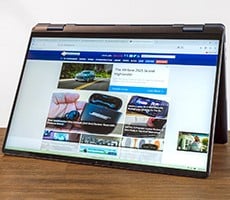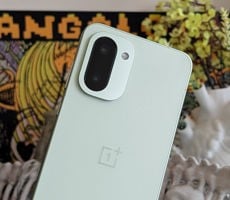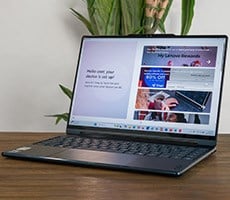Google Pixel 7a Android Phone Review: Near Pixel Perfect
| Google Pixel 7a - Starting at $499 The Google Pixel 7a gives you almost all the goodies from more expensive Pixels at a lower price.
|
|||

|

 |
||
Google addressed several long-standing hardware shortcomings in the A-series this time around. The Pixel 7a gets an upgraded display, a new camera, and even wireless charging. Plus, you get the same great Pixel software and the same Tensor G2 chip that powers the Pixel 7 and Pixel 7 Pro. When the 7a is this good, it's hard to justify spending another Benjamin on the Google Pixel 7.
Google Pixel 7a Features and Specs
| Processing and 5G Platform | Google Tensor G2 |
| Display | 6.1-inch OLED, 1080 x 2400 @90Hz |
| Memory | 8GB |
| Storage | 128GB |
| Rear-Facing Cameras | 64MP f/1.9 w/ OIS primary, 13MP f2.2 (120-degrees) ultrawide |
| Front-Facing Cameras | 13MP f2.2 |
| Video Recording | 4K@30/60fps, 1080p@30/60/120/240fps |
| Battery | 4385mAh |
| OS | Android 13 |
| Dimensions | 152 x 72.9 x 9 mm |
| Weight | 193g |
| Connectivity | Wi-Fi 6e, Bluetooth 5.3+LE, NFC, USB-C, LTE, 5G (sub-6GHz) |
| Colors | Charcoal, Sea, Snow, Coral |
| Pricing | Starting at $499 |
At a glance, it's impossible to tell the Pixel 7a and Pixel 7 apart. Even a longer assessment might leave you confused. The 7a has the same matte aluminum frame and prominent camera visor that wraps around the back. One of the notable downgrades for the 7a is in the materials, however. Instead of Gorilla Glass on the back, you get plastic. The display on the front is under Gorilla Glass 3 rather than the latest Victus glass you get on most flagship phones.
The display is one of the Pixel 7a's best features. Sure, you can find OLEDs that are sharper, brighter, or smoother, and sometimes they'll be all three. However, they'll also be on phones that cost a lot more. For $500, the 7a offers a 6.1-inch 1080p OLED and an impressive 1,000 nits of brightness. Google also added a 90Hz refresh rate this year, matching what you get on the Pixel 7. There's an optical fingerprint sensor under the screen, and it performs about as well as Google's flagship phones. It's somewhat higher on the screen than most phones, but we found this location to be very comfortable and natural when unlocking the phone. The sensor is reasonably fast and accurate too, but the ultrasonic sensors on Samsung's phones perform better in our experience.
The 6.1-inch screen is 0.2 inches smaller than the Pixel 7's, and even with some slightly chunky bezels, the Pixel 7a is a bit more compact. If you're picky, you'll notice that the bezel along the bottom is larger than the others, and the seam between the body and display is plainly visible. These design quirks do make the Pixel 7a look and feel cheaper, but that doesn't detract from the overall build quality, which is excellent. The Pixel 7a even has IP67 certification for water and dust resistance, which is often missing on mid-range phones.
Google dropped the headphone jack from its budget Pixels with the 6a, and the 7a continues that trend. The only port is the USB-C on the bottom edge, where you'll also find a speaker (paired with the earpiece for stereo) and a mic. The power and volume buttons are both on the right edge, and they're stable and tactile.
Google Pixel 7a: Software
Google's software is one of the primary reasons to buy a Pixel. You won't find as many pre-loaded apps or features as phones from Samsung or OnePlus, but that's part of what makes the Pixel 7a great. You can install the tools you want while keeping the device lightweight, and there are numerous useful features baked into the OS.Google does include a few custom apps, but they all have a reason to exist—there's no real bloatware here. We are continuously impressed by the Google Recorder app, which can record audio and create a transcript. It even separates different speakers automatically. There are also more powerful voice typing features on Pixel phones, allowing you to input text and say things like "delete that word" or "next field."
Unwanted phone call solicitations are annoying, and it's a real shame that our mobile internet companions aren't immmune to them. That said, the Pixel 7a makes unwanted phone calls less awful with features like Call Screen to filter out spam. There's nothing like screening an unknown number and seeing a scammer hang up. And then there's Hold for Me, which waits on hold for you and then alerts you when the other party is back. There's also Clear Calling, a feature that debuted on the Pixel 7 to improve call audio with the power of AI.
Pixel phones are the best way to experience Google's vision for Android, and not just because of the update support. Google's Android skin (which still does not have a name) is built on a foundation of Material You. When you change the background, system elements change colors, and the icon theming works better than it does on most phones. Google's animations are also elegant without being overdone or annoying like some phones.
Not only do you get a clean, elegant build of Android, but Google also promises longer support and faster updates than the competition. The Pixel 7a will have at least three years of full OS updates, plus five years of security patches.
Google Pixel 7a: Cameras
The Google camera experience is at least as important as the software for Pixel phones. Google's investment in computational photography has paid off big time when even the Pixel 6a with its ancient sensors was doing so well. The Pixel 7 and Pixel 7 Pro are, by many ways, the best cameras you can put in your pocket in our opinion. The A-series has trailed the flagships in camera hardware before, but the Pixel 7a takes a big step in the right direction with its upgrade from 12MP to 64MP with optical stabilization for the primary sensor.
Don't get too excited about those numbers, though. While the Pixel 7a camera has more pixels than the 7 and 7 Pro 50MP shooter, it's a smaller sensor that doesn't collect as much light. That said, it's still a phenomenal camera when paired with Google's HDR+ photo processing. After you take a picture, Google lets you zip right over to the gallery to watch as it's processed. You can see the unprocessed version in your gallery for a second before it refreshes with the final version, which can help you fully appreciate the Google magic.
Details are crisp, lighting is even, and capture times are quick. Unlike many smartphone cameras, the Pixel 7a is fast enough to capture moving objects inside without becoming a blurry mess. However, the Pixel 7 and 7 Pro definitely beat the 7a here. Likewise, the 7a doesn't do quite as well in Night Sight mode; captures are a little longer, colors more muted, and details less sharp. It's still worlds better than most phones not made by Google or Samsung, though.
The Pixel's only other rear camera is a 13MP ultrawide, which does its job ably. Again, it's a slightly higher resolution than the Pixel 7 (12MP), but the sensor, and therefore the pixels, are smaller. The 120-degree field of view is different enough from the main sensor that you'll want to switch to it for landscape and group shots.
There's not too much distortion at the edges, and we appreciate the way Google's image processing keeps lighting even in those ultrawide frames (see below). Sadly, there's no autofocus, so Google's macro mode is not present.
sVideo quality takes a step down on the 7a, with a limit of 30 fps for 4K recordings with the main sensor. The 8MP selfie camera is limited to 1080p30, but the lower resolution doesn't make for poor selfies. This camera performed well for us thanks to Google's processing. Portrait mode, whether using the main or selfie camera, is great on the Pixel 7a. Even without a depth sensor, the phone is very good at finding the subject and applying a subtle bokeh to the background.







